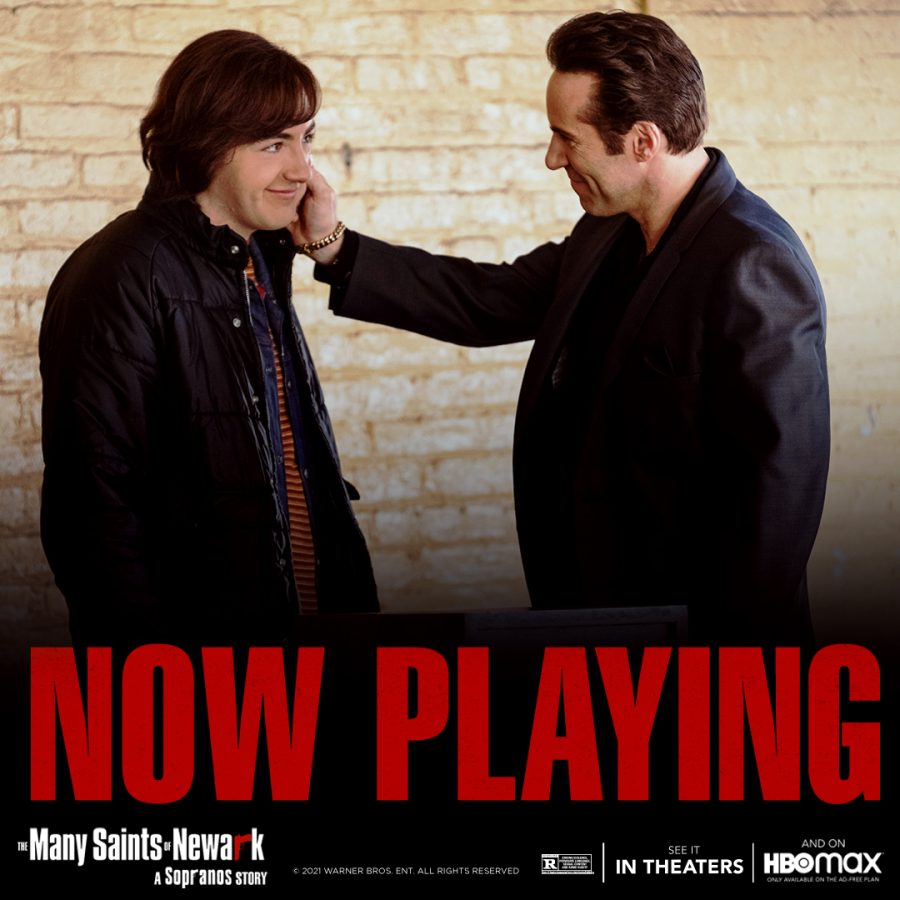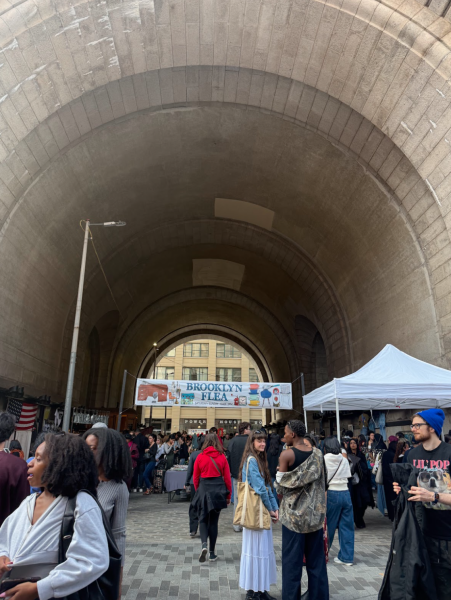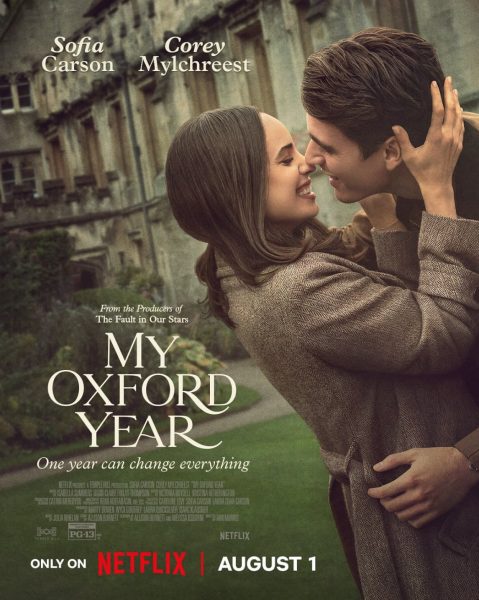The Many Saints Came Marching
“The Many Saints of Newark” fills gaps in “The Sopranos”’ Tony Soprano’s life. (courtesy of Twitter)
In 1999 the world was shocked and enthralled by the saga of Tony Soprano, an aging mobster from New Jersey who struggles to deal with the fact that his life is passing by. “The Sopranos,” which aired until 2007, follows Tony Soprano as he battles with the reality that his wife and children are drifting away from him while continuing in his family’s footsteps as a member of the DiMeo crime family.
Tony’s early life is often discussed in the show but not usually shown. “The Many Saints of Newark” fills those gaps, showing us just how much the trajectory of Tony’s life was shaped by his family from an early age. Tony’s parents, Livia and Giovanni “Johnny Boy” Soprano (played in the movie by Vera Farmiga and Jon Bernthal, respectively) were both manipulative, abusive and self-obsessed people who were rarely concerned with the well-being of their son (who in this film is played by Michael Gandolfini, the son of James Gandolfini who played Tony in the original series). As a consequence of this, Tony gravitated toward his kinder, more parental Uncle Dickie “Gentleman Dick” Moltisanti (played by Alessandro Nivola), his surname literally translating into “many saints.” Dickie is also the father of Christopher Moltisanti, who is shown working under Tony in the show.
“The Many Saints of Newark” is Tony’s origin story seen primarily through the lens of the life of “Gentleman Dick” and says a lot about how the actions and impact of one life can echo into another, intentionally or not. Young Tony wants more than anything to go to college and play football, but the world which he was born into and the people he was tossed in with make that a very difficult task. This is all taking place in a very tumultuous time in Newark as well as the nation at large. The film is split into two halves that take place in 1967 and 1971.
The 1967 Newark riots were among many others that took place during the “Long Hot Summer,” and the film uses this event effectively to demonstrate how history leaves its mark on the making of a person just as much as family does. In seeing the life of “Gentleman Dick” play out, with its series of cold-blooded murders, brutal tortures, violent street-wars, poorly hidden affairs and fragile attempts at moral retribution, one is reminded rather poetically that history may not repeat, but in the case of Tony Soprano, it might just rhyme.
Apart from the film’s thematic successes, which can be understood or appreciated whether you have seen the original HBO series or not, the film also balances brutality with breathtaking visuals through its cinematography. Few people have ever described Newark as a cinematic location, but seeing it reformed into what it looked like in 1967 and 1971 down to the finer details reminds one how the recent past was hardly full of sunshine and rainbows.
The violence in the film is typical for a mob movie, but in one or two places it succeeds in being original enough for you to grit your teeth at.
Some parts of the movie do feel like a cut-and-paste mob film, especially how it focuses on the corruption of innocence and the tragedies involved in picking the wrong role model. However, the film handles these aspects with enough nuance and originality that it doesn’t feel like the film’s acclaim should be owed in too large a degree to the success of the series alone.
There are some incredible and notable performances in the film such as Ray Liotta as Aldo “Hollywood Dick” Moltisanti and his brother Sal “Sally” Moltisanti, who play two deeply disturbed individuals, one more remorseful than the other. They serve in his frighteningly cool manner as both the literal and figurative angel and devil on Gentleman Dick’s shoulder’s. Leslie Odom Jr. plays Harold McBrayer, a haunted former enforcer for Gentleman Dick who decides that he’s done doing dirty work for mobsters and starts a war of his own. Finally, Corey Stoll as a young Junior Soprano brings a rejuvenated sense of self-regulated vitriol and Machiavellian planning to the character of the crotchety old mobster from the original series.
Overall this film is a meaningful addition to the tragedy of Tony Soprano, but if that doesn’t impress you then it is still a worthwhile and engrossing take on the familiar modern tale of the boy and the criminal.















































































































































































































